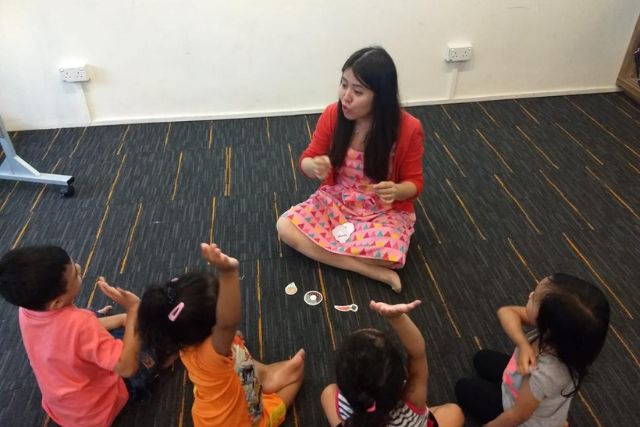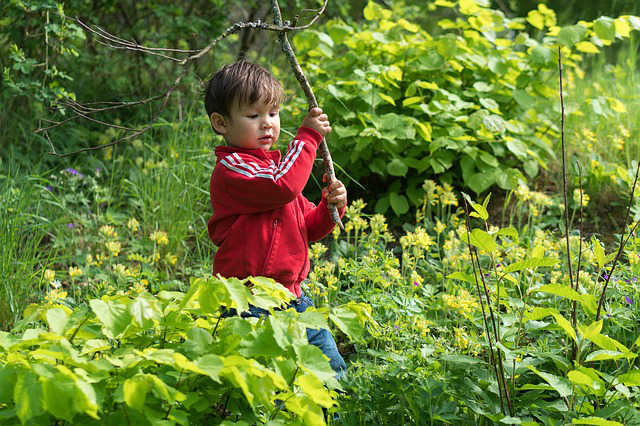Optimistic children blossom from environments that nurture self-efficacy (the belief in one’s independent capability), perseverance, hopefulness, and problem-solving skills.
While there is no exact recipe to raise an optimistic child, research has shown that certain factors of optimism are within parental control.
Whether you have an infant, a toddler, or an older child, here are things you can do to cultivate optimism in your little one.

For Infants: Show them a happy face
As early as the first month of infancy, babies pick up on facial expressions and mimic what they see. Maximise on face-to-face interaction with your baby as early as possible, focus on displaying positive facial expressions like smiling and laughing. By learning to imitate happy expressions, the seeds of positivity can be planted.
At around 4 months of age, your baby may be able to briefly soothe themselves when mildly distressed. Allow them to practice this skill by giving a few extra moments to see if they can manage to self-soothe before you step in to comfort them. When they successfully calm down on their own, reward them with plenty of affection. This practice can give rise to your baby’s self-efficacy.
For Toddlers: Try, try, try
As your child’s language abilities grow, form a positive association with the word “try”. If your child expresses hesitance, lead the way and engage in the activity with enthusiasm. More than likely, your little one will follow suit if you seem to enjoy it.
This shows your child that, despite initial uncertainty, trying new things can be fun and pleasurable. Whether they engage in a new activity on their own or with your influence, give them specific praise involving the word “try”.
For example, “Thank you for trying!” or “You are so brave to try it!”

Read them stories and select television shows in which characters persist through challenges. Cheer the character on as the story progresses, and compliment the character for persevering. You may also turn your child’s favourite storyline into a role-play game, and throw a mini-celebration when the resolution is reached.
There are many games for toddlers that call for problem-solving, such as puzzles, shape-sorters, or matching cards. When your child encounters a challenge, encourage them to keep at it. If they appear frustrated with a problem, gently guide them, and cheer for them when they get it right. By practising this, your child develops greater self-efficacy and gains hopefulness about overcoming obstacles in the future.
For School-aged Children: Encourage and Praise
When children enter school, they face a new stress of having their work graded. Show your child that their worth and future does not solely depend on school. Aside from rewarding strong academic results, don’t forget to praise your child outside of school.
Maybe he or she is an impressive singer, or has the ability to befriend just about anyone.
Be generous about giving credit to these qualities too.
Even confident children will encounter negative experiences. When your child feels down, hear them out. Lend them your empathy, but do not dwell on it for too long. Ask how they think the situation can be resolved or addressed, and provide your input if needed. Once a plan has been agreed upon, praise your child for not giving up and keeping hopeful.
The key factor in nurturing your child’s optimism is to instil hopefulness.

Shower your child with encouragement, even when a task may seem out-of-reach for him or her. Provide them with guidance and comfort when they are struggling.
Above all, always highlight your confidence for the situation to improve.
You are your child’s biggest role-model. Your optimism will resonate through by practising what you preach.
Contributed by Ms Michelle Chak, Psychologist at MindChamps Allied Care @ Serangoon Gardens.
MindChamps Allied Care uses evidence-based practice, an integration of research evidence with clinical expertise and your child’s values and preference to achieve improved therapy outcomes.
This article was first published in The New Age Parents e-magazine.
If you find this article useful, do click Like and Share at the bottom of the post, thank you.
Want to be heard and seen by over 100,000 parents in Singapore? We can help! Leave your contact here and we’ll be in touch.
























































